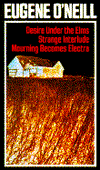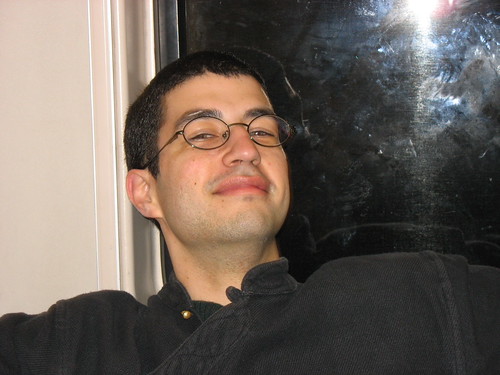
William Shakespeare’s Romeo and Juliet
Begin: 05/29/07
End: 05/31/07
Quality: Ten out of Ten
Reason: Reading Plan.
Genre: Classics. Drama. Tragedy.
Original Language: English.
Date of Publication: 1623.
Fog Index: 6.6/93% are harder.
Flesch Index: 77.2/92% are harder.
Flesch-Kincaid Index: 4.7/94% are harder.
Complex Words: 8%/85% have more.
Number: Numerous.
Synopsis: As if everyone doesn’t know this story!!
Thoughts:
I am so glad I chose this play for my Shakespeare this month. Wow. After reading, I don’t know how many problem plays, this was a breeze. I forgot how good it was. Although I did have the problem of relating the action in my head to the Romeo and Juliet movie with Leonardo DiCaprio and Claire Danes. Nevertheless, I really do love this play. I mean some of the lines are just so mesmerizing. And it really is such a beautiful play. I find that some of the lines and some of the action seem to be a little bit extra but that is really just the era I live in.
Really-Really Good.
True, I talk of dreams,
Which are the children of an idle brain,
Begot of nothing but vain fantasy,
Which is as thin of substance as the air
And more inconstant than the wind, who wooes
Even now the frozen bosom of the north,
And, being anger'd, puffs away from thence,
Turning his face to the dew-dropping south.
O, she doth teach the torches to burn bright!
It seems she hangs upon the cheek of night
Like a rich jewel in an Ethiope's ear;
Beauty too rich for use, for earth too dear!
So shows a snowy dove trooping with crows,
As yonder lady o'er her fellows shows.
The measure done, I'll watch her place of stand,
And, touching hers, make blessed my rude hand.
Did my heart love till now? forswear it, sight!
For I ne'er saw true beauty till this night.
ROMEO
[To JULIET] If I profane with my unworthiest hand
This holy shrine, the gentle fine is this:
My lips, two blushing pilgrims, ready stand
To smooth that rough touch with a tender kiss.
JULIET
Good pilgrim, you do wrong your hand too much,
Which mannerly devotion shows in this;
For saints have hands that pilgrims' hands do touch,
And palm to palm is holy palmers' kiss.
ROMEO
Have not saints lips, and holy palmers too?
JULIET
Ay, pilgrim, lips that they must use in prayer.
ROMEO
O, then, dear saint, let lips do what hands do;
They pray, grant thou, lest faith turn to despair.
JULIET
Saints do not move, though grant for prayers' sake.
ROMEO
Then move not, while my prayer's effect I take.
Thus from my lips, by yours, my sin is purged.
JULIET
Then have my lips the sin that they have took.
ROMEO
Sin from thy lips? O trespass sweetly urged!
Give me my sin again.
JULIET
You kiss by the book.
But, soft! what light through yonder window breaks?
It is the east, and Juliet is the sun.
Arise, fair sun, and kill the envious moon,
Who is already sick and pale with grief,
That thou her maid art far more fair than she:
Be not her maid, since she is envious;
Her vestal livery is but sick and green
And none but fools do wear it; cast it off.
It is my lady, O, it is my love!
O, that she knew she were!
She speaks yet she says nothing: what of that?
Her eye discourses; I will answer it.
I am too bold, 'tis not to me she speaks:
Two of the fairest stars in all the heaven,
Having some business, do entreat her eyes
To twinkle in their spheres till they return.
What if her eyes were there, they in her head?
The brightness of her cheek would shame those stars,
As daylight doth a lamp; her eyes in heaven
Would through the airy region stream so bright
That birds would sing and think it were not night.
See, how she leans her cheek upon her hand!
O, that I were a glove upon that hand,
That I might touch that cheek!







